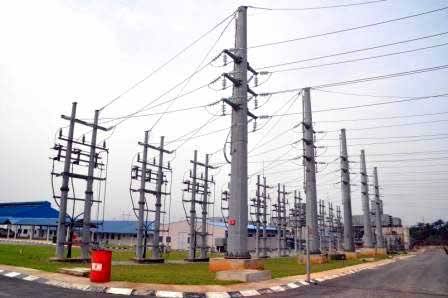Aba Power, the newest electricity distribution company in Nigeria, is embarking on a transformative prepaid meter rollout initiative that promises to significantly impact both employment and service delivery in its operational area. The project, scheduled to commence this month, will generate over 350 direct jobs through partnerships with three meter producers, contributing to economic growth within the region. This initiative marks a significant step towards modernizing the electricity infrastructure and enhancing customer satisfaction by transitioning away from the often-contentious estimated billing system.
The job creation aspect of this project is multifaceted. Each of the meter vendors partnering with Aba Power is expected to create over 100 direct employment opportunities, including meter assemblers, installers, transporters, warehouse personnel, and security staff. This direct employment surge will have a ripple effect on the local economy, benefiting various supporting industries and service providers. One of the prominent partners, Kayz Consortium, is not only contributing to local employment but also facilitating knowledge transfer through the inclusion of eight expatriates who will oversee the meter assembly process and train local personnel. This strategic approach ensures quality control while simultaneously building local capacity for future projects, promoting sustainable growth and development within the region.
Kayz Consortium is slated to assemble an impressive 90,000 meters between April 2023 and December 2025, setting the stage for rapid deployment across the Aba Power network. These meters will be assembled within the Aba Power premises located in the Osisoma Industrial Layout, further emphasizing the company’s commitment to local investment and employment. The presence of expatriates represents a valuable opportunity for skills development within the local workforce, equipping them with the technical expertise required for meter assembly and installation. This knowledge transfer contributes to long-term economic empowerment within the community.
In addition to Kayz Consortium, Aba Power is collaborating with two other key players in the meter rollout project: Chint Power and Energy Services, and Eve Electric, both based in China. These companies will contribute significantly to the rapid deployment of meters, each working with a dedicated team of 34 installers. Starting in May, these firms will begin mass meter installations, accelerating the transition to prepaid metering for Aba Power customers. Furthermore, the project embraces local content by incorporating indigenous meter manufacturing companies, HAMPOC Utilities Limited and M E Meters, into the supply chain.
These two local companies will install 20,000 prepaid meters within a tight timeframe of four weeks, further bolstering the rapid metering initiative. This inclusion of local manufacturers underscores Aba Power’s dedication to supporting local industries and fostering economic growth within the country. Collectively, these partnerships and initiatives will enable Aba Power to rapidly deploy a substantial number of meters, bringing much-needed relief to customers who have long endured the challenges of estimated billing. This swift action demonstrates the company’s commitment to customer satisfaction and its proactive approach to addressing a critical issue within the power sector.
The overarching goal of Aba Power is to provide all of its estimated 350,000 customers in the Aba Ring-fenced Area with modern prepaid meters within a year. This ambitious target demonstrates a strong commitment to improving service delivery and enhancing the customer experience. The transition to prepaid metering offers numerous benefits, including increased transparency, accountability, and greater control over energy consumption. By empowering customers with the ability to monitor and manage their electricity usage, Aba Power is fostering a more positive and mutually beneficial relationship between the utility provider and its clientele. This win-win scenario lays the foundation for a more sustainable and efficient power sector within the region.














